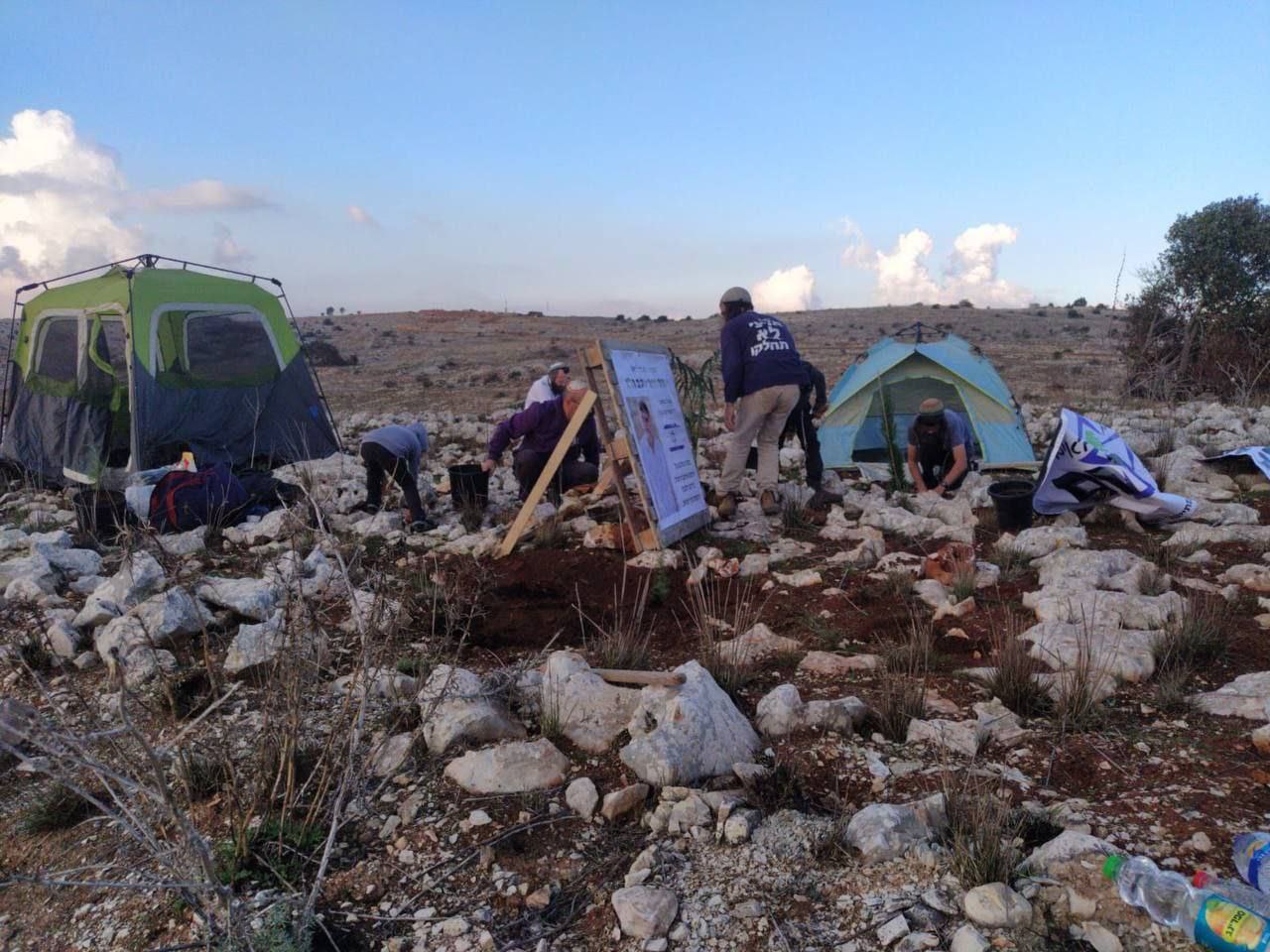“Israeli” Provocations: A New Breach of Lebanese Sovereignty amid Expansionist Ambitions
By Fatima Haydar
Beirut – In a provocative act that underscores "Israel's" ongoing expansionist ambitions, Prof. Amos Azaria, an "Israeli" settler and lecturer at Ariel University, who once gained notoriety for reading a story to his son about a boy and his father claiming that “Lebanon belongs to ‘Israel,’” has now infiltrated Lebanese territory, breaching the ongoing ceasefire agreement.
The man, previously featured in a viral video narrating his ideology, has deep ties to the far-right movement “Uri Tzafon” ["Wake Up North"], which he leads. The group has also promoted a crowd-funded book, "Alon and Lebanon", which glorifies the "Israeli” entity's claim to Lebanese territories.
Azaria was recently photographed with his son near the southern Lebanese village of Maroun Al-Ras, a location known for its symbolic importance in resisting "Israeli" aggression. The photos, widely circulated among settler communities, serve as propaganda, celebrating this act as a symbolic step toward the so-called "Greater ‘Israel’" vision.
An Escalation of Expansionist Ambitions
Months ago, a video of Azaria gained traction online, showing him recounting to his son a tale of how “Lebanon is part of ‘Israel’”. Produced and promoted by the extremist “Uri Tzafon” movement, the video reflected an ideological push to prepare settler communities for the idea of expanding "Israel's" borders into Lebanon. Now, Azaria’s recent infiltration into Lebanese territory seems to be the next phase of this calculated campaign, tying propaganda to action.
The "Alon and Lebanon" book, authored by Azaria, glorifies this expansionist vision, framing Lebanon as an integral part of a future “Greater ‘Israel’”. This ideology is deeply rooted in "Israel's" far-right factions and has fueled acts of aggression in Syria and Lebanon alike.
Provocations and Strategic Messaging
In Lebanon, however, "Israel" faces a formidable obstacle: the Islamic Resistance – Hezbollah. Unlike in Syria and the occupied West Bank, where settlements have been established with relative impunity, the Resistance in Lebanon, firmly rooted in the country’s fabric, has thwarted any attempts at permanent occupation. Aware of the consequences of direct confrontation, "Israeli" forces and settlers have resorted to symbolic provocations like these: infiltrating Lebanese land, taking pictures and retreating swiftly to Occupied Palestine.
This tactic of photographing themselves on Lebanese territory and publicizing the images serves a dual purpose. First, it instills a narrative of inevitable conquest among settler communities. Second, it provokes fear and uncertainty, testing the limits of international response to "Israel's" violations. However, the Resistance’s vigilance ensures that such provocations remain symbolic rather than territorial gains.
An Old Plan in Motion
The infiltration is a stark reminder of the long-term strategies pursued by "Israel’s" far-right factions. The promotion of ideological works like "Alon and Lebanon" and propaganda videos by “Uri Tzafon” are not isolated incidents but part of a systematic campaign. The timing of these provocations, including the recent infiltration during a ceasefire, underscores "Israel's" disregard for international agreements and Lebanese sovereignty.
Lebanon: A Red Line
Unlike other occupied territories, Lebanon has proven to be a red line for "Israel". While the apartheid entity has extended settlements in other parts of the region, Lebanon remains a formidable obstacle. The Resistance’s military and ideological strength have deterred any meaningful incursions, forcing "Israel" to rely on propaganda and symbolic gestures.
However, these provocations highlight a persistent threat: "Israel's" expansionist vision has no bounds, and its aggression is driven by deeply rooted ideologies. The recent infiltration and its accompanying propaganda only serve as a reminder of the broader goals of "Israel's" far-right factions and their disregard for sovereignty as well as their ongoing expansionist ambitions and its disregard for international law.
In Lebanon, the Resistance’s resolve ensures that such ambitions remain a distant dream. The message is clear: provocations may come, but the response will always be firm.
Comments







